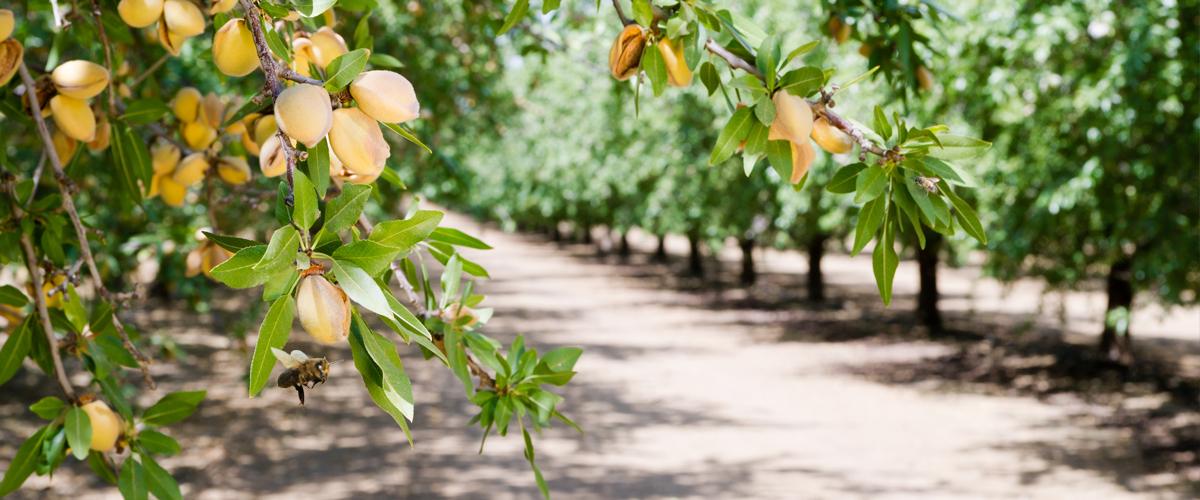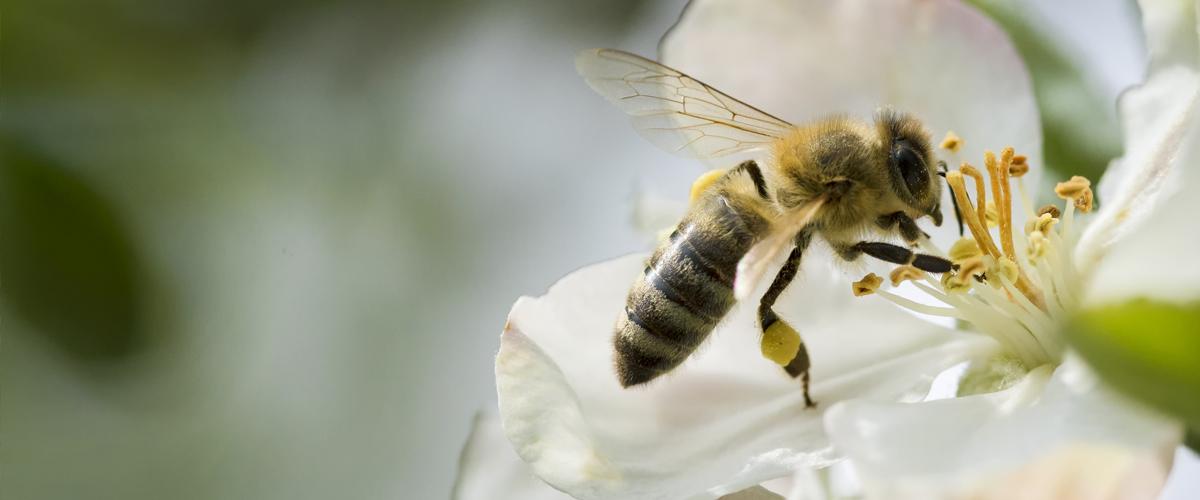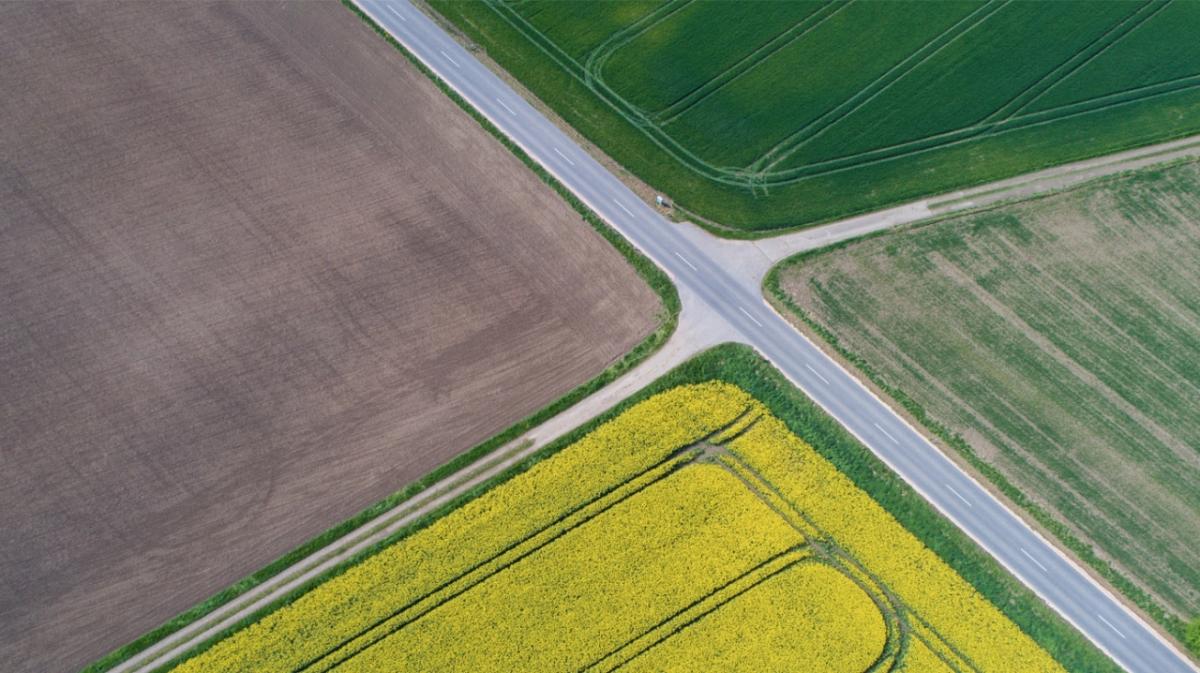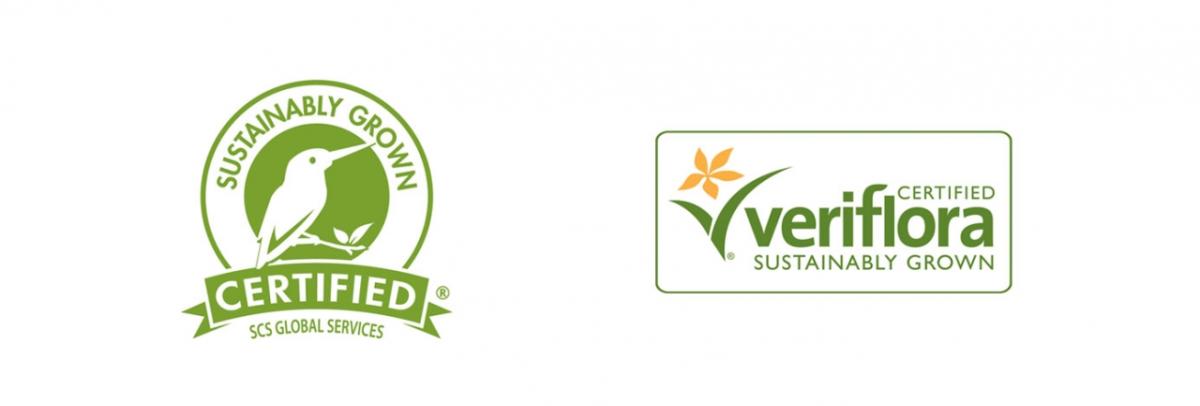Enlightened Farm Policies, Practices and Sustainable Agriculture Standards Bear Fruit for Pollinators
By Lesley Sykes, SCS Global Services
Many of our most beloved fresh food crops – almonds, apples, avocados, mangoes, blueberries, and pumpkins, to name a few –depend on pollinators to bear fruit. In addition, pollinators contribute to crops used for livestock forage, biofuels, and fibers. Beyond agriculture, pollinators are essential to our natural ecosystems, responsible for the reproduction of over 85 percent of the world’s flowering plants. As such, pollination services are central to the conversation about global food production, nutritional security, and our overall wellbeing.
Yet, as vital as they are, pollinators like bees are under threat worldwide from habitat loss, pesticide use, and diseases. Without their vital pollination services, it is believed that ecosystem processes would suffer. It’s no wonder the decline of these tiny invertebrates has gained so much attention worldwide – as of 2017, they even have a day named after them: World Bee Day, which falls on May 20th. This Earth Day, we’d like to call attention to the very important issue of pollinator health in the context of sustainable agriculture, and highlight some of the organizations and companies working to protect these pollinators and our food supply.
What are pollinators? Technically speaking, pollinators refer not just to bees, but a variety of species– including beetles, butterflies, flies, moths, bats, and birds – that support the diversity of plant life by transfer of pollen from one plant to another. Native pollinators have a symbiotic relationship with flowering plants, and are essential for overall ecosystem health and biodiversity. These pollinator populations are vulnerable when the ecosystems within which they thrive are threatened.
In this article, we focus on bees – and in particular honey bees, Apis mellifera - because they are the world’s most important pollinator for commercial agriculture production. Their role is especially important for large-scale crops that rely on land devoted solely to one crop (i.e., monoculture systems). Bee populations, both wild and managed, are at risk due to a variety of factors.
What is going on? Land use change, pesticide use, large-scale monoculture and climate change are all threats to bee populations. As farm fields have become larger (and less diverse) and cities continue to grow, natural habitats and forage areas are shrinking, which pollinator populations need to survive. Additionally, the use of certain agricultural chemicals has increased since the 1990s, most notably neonicotinoids that have been shown to be toxic to beneficial insects. Following widespread use of neonicotinoids in agriculture, commercial beekeepers started reporting unusually high colony loss rates. This problem affected the number of hives available for crop pollination in the U.S., and prompted many supply chain actors and nonprofits to take a closer look at what was going on. A similar phenomenon was also happening in Europe.
Taking Action. Recognizing the multi-faceted issue, numerous organizations and companies have made the conservation, restoration, and sustainable use of pollinators a priority. It has become an important concern for international groups such as the Food and Agriculture Organization (FAO) of the United Nations (UN) through its Global Action on Pollination Services for Sustainable Agriculture, federal agencies like the Environmental Protection Agency (EPA) and the U.S. Department of Agriculture (USDA) (see their joint report here), and a growing number of state legislatures. These groups have mobilized resources and taken action around research, implementation of best practices, and enhancing awareness. This momentum led the FAO and some 52 countries to support the declaration of May 20th as the World Bee Day.
Non-profits like the U.S.-based Xerces Society and Pollinator Partnership have also played critical roles in publishing research, policy advocacy, and educating land managers to restore landscapes for the benefit of invertebrates. In addition, the private sector has taken a stance – for instance, by creating coalitions to work together, and developing voluntary standards (e.g., Bee Better Certified) and other tools to improve pollinator health. For example, the Kellogg Company serves on the Honey Bee Health Coalition and supports cost-share programs for farmers looking to implement conservation practices on their farms to facilitate healthy pollinator populations. Whole Foods Market donates to Xerces Society and has a pollinator friendly labeling program for almond products, which means that almonds are sourced from orchards that take extra measures to create biodiverse landscapes. As a third-party certifier and standards developer, SCS is also playing a role, described below.
What can land managers do? Much research has been conducted on the topic of protecting pollinators in agricultural landscapes. The good news is that such efforts are consistent with key sustainable agriculture tenets, offering an opportunity to not only benefit the environment, but to enhance crop yields, quality, and resilience of cropping systems. Management practices related to restoring and enhancing conservation areas to promote pollinator health have been identified and tested by agricultural producers. For example, increasing the amount of natural land cover in and surrounding fields – even small patches of natural habitat – can help to establish and maintain diverse pollinator communities. Other strategies include allowing some fields to go fallow, or reducing tillage so that flowers can reestablish. Reducing impacts of pesticides known to be toxic to invertebrates is paramount to pollinator protection. Best practices include avoiding application of pesticides toxic to pollinators during crop bloom, and mitigating pesticide drift. In addition, areas prone to contain pollinators and nesting sites should be identified and carefully protected from contamination.
The role of third-party certification. Third-party certification plays an important role in communicating producer efforts in environmental responsibility, including land conservation and pollinator protection. For example, SCS Global Services’ Sustainably Grown® certification for agricultural crops, and its Veriflora® certification for cut flowers and potted plants, address pollinator health through a holistic sustainable agriculture framework, validating best practices through annual audits, including mitigation of risks associated with pesticide drift and maintenance of suitable buffer areas to minimize impacts on pollinators and wildlife. Land managers must also demonstrate knowledge of endangered species and habitats in or surrounding farms, and consider the risks associated with pesticide use, including adherence to the program’s pesticide management requirements and prohibited pesticide lists.
Conclusion. Because of the essential role honey bees and other pollinators play in agriculture, and in the larger environment, protection of pollinators is a cause upon which stakeholders across the spectrum of opinion can agree. At a time when so many issues are divisive, it is reassuring to bear witness to this unity of purpose.
Lesley Sykes is Manager of Sustainable Agriculture for SCS Global Services. To find out more about the Sustainably Grown certification program, contact Lesley at lsykes@scsglobalservices.com, or call 1.510.452.6823.
Information sources:
http://www.fao.org/pollination/projects/en/
https://www.wholefoodsmarket.com/pollinators
https://www.cbd.int/doc/decisions/cop-13/cop-13-dec-15-en.pdf
Klein et al. 2007. Importance of Pollinators in Changing Landscapes for World Crops. Proc Biol Sci. Feb 7; 274(1608): 303–313 https://www.ncbi.nlm.nih.gov/pmc/articles/PMC1702377/
Eilers, EJ., et al. 2011. Contribution of Pollinator-Mediated Crops to Nutrients in the Human Food Supply. PLOS One 6(6): e21363. http://journals.plos.org/plosone/article?id=10.1371/journal.pone.0021363
Godfray et al. 2015. A Restatement of Recent Advances in the Natural Science Evidence Base Concerning Neonicotinoid Insecticides and Insect Pollinators. PROCEEDINGS OF THE ROYAL SOCIETY B-BIOLOGICAL SCIENCES Volume: 282 Issue: 1818 http://rspb.royalsocietypublishing.org/content/royprsb/282/1818/20151821.full.pdf





